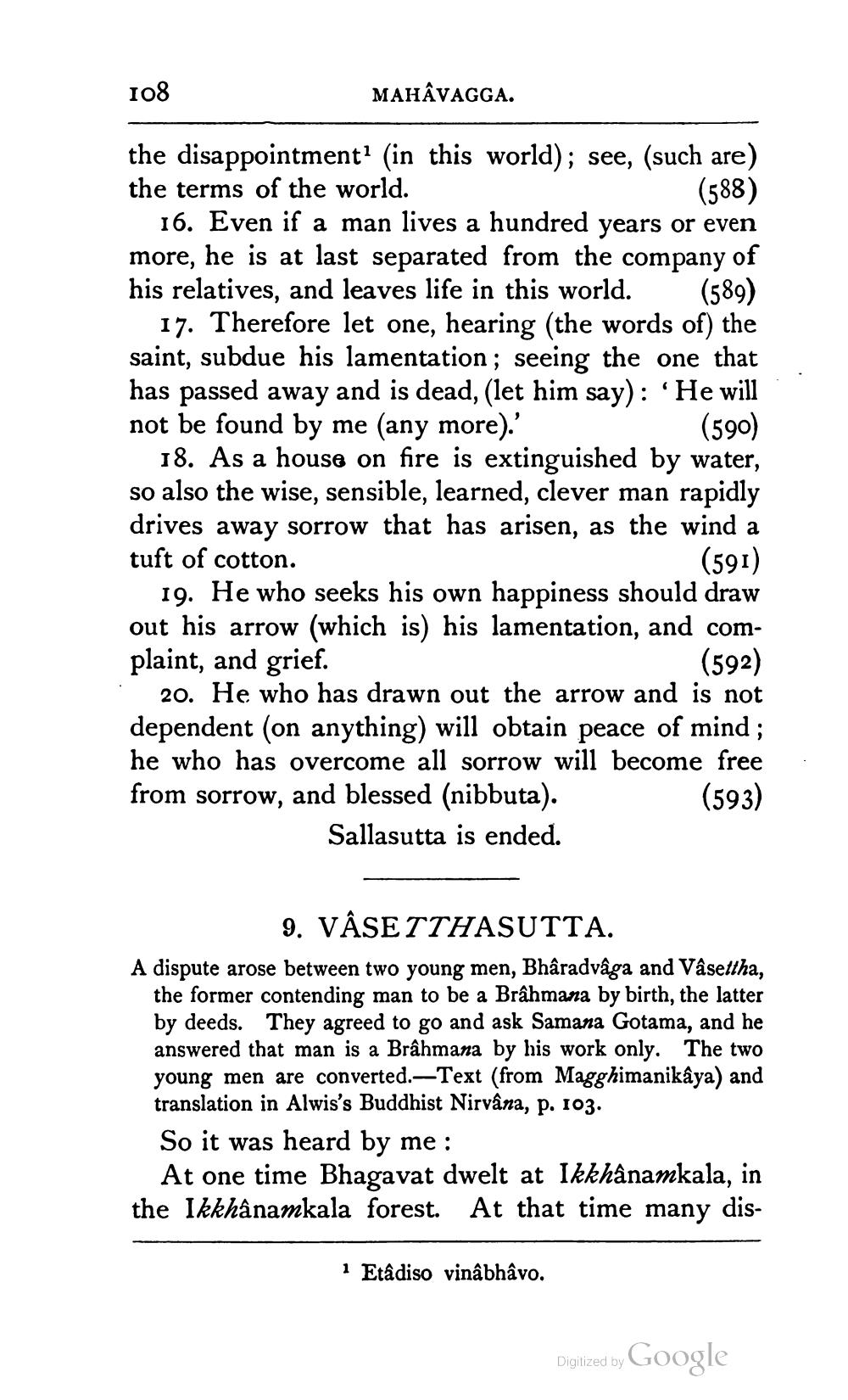________________
108
MAHÂVAGGA.
the disappointment? (in this world); see, (such are) the terms of the world.
(588) 16. Even if a man lives a hundred years or even more, he is at last separated from the company of his relatives, and leaves life in this world. (589)
17. Therefore let one, hearing (the words of the saint, subdue his lamentation; seeing the one that has passed away and is dead, (let him say): 'He will not be found by me (any more).
(590) 18. As a house on fire is extinguished by water, so also the wise, sensible, learned, clever man rapidly drives away sorrow that has arisen, as the wind a tuft of cotton.
(591) 19. He who seeks his own happiness should draw out his arrow (which is his lamentation, and complaint, and grief.
(592) 20. He who has drawn out the arrow and is not dependent (on anything) will obtain peace of mind; he who has overcome all sorrow will become free from sorrow, and blessed (nibbuta).
Sallasutta is ended.
(593)
9. VÂSETTHASUTTA. A dispute arose between two young men, Bhâradväga and Vasettha,
the former contending man to be a Brâhmana by birth, the latter by deeds. They agreed to go and ask Samana Gotama, and he answered that man is a Brâhmana by his work only. The two young men are converted.—Text (from Magghimanikâya) and translation in Alwis's Buddhist Nirvâna, p. 103. So it was heard by me :
At one time Bhagavat dwelt at Ikkhânamkala, in the Ikkhânamkala forest. At that time many dis
1 Etâdiso vinâbhâvo.
Digitized by Google




